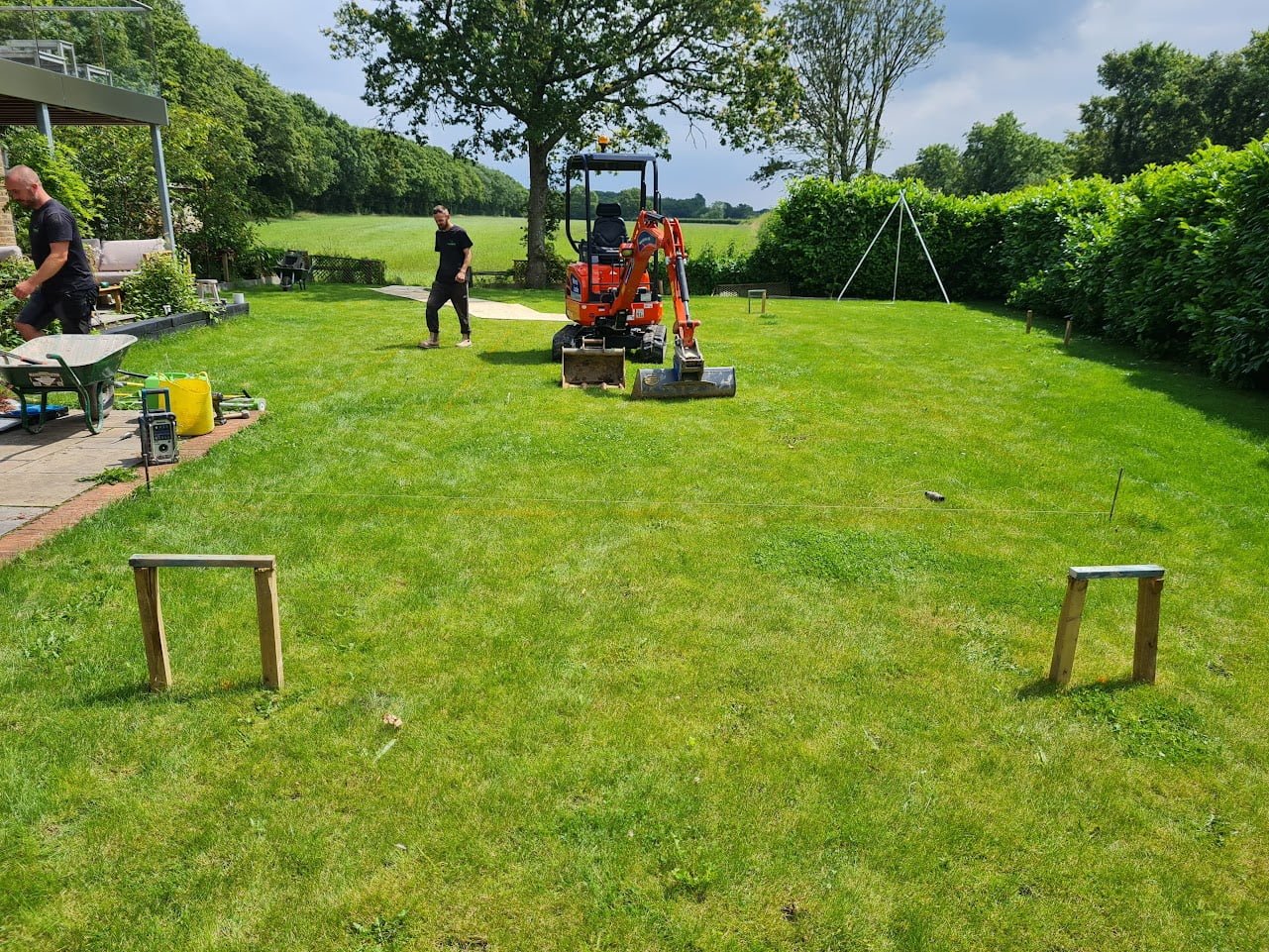Swimming pools can be a luxurious addition to any home, providing a great place to relax and offer entertainment for family and friends. Constructing a swimming pool requires careful planning and design, so it’s extremely important to employ a professional company with a vast amount of experience. The biggest mistake you can make is choosing the wrong pool design company – as this can lead to costly repairs down the line.
At Hydrocare Leisure Ltd we specialise in building high-quality swimming pools across Sussex and Surrey. In this guide we explore the most common mistakes to avoid, and if you’re looking for pool installation, servicing and maintenance, contact us today for professional and expert services across Sussex and Surrey.
Insufficient planning and design
Insufficient planning and design during swimming pool construction, can lead to costly mistakes and compromise the sought after luxury that swimming pools offer to homeowners.
One of the most common mistakes is the failure to prioritise swimming pool design. The design of a swimming pool is critical to ensuring that it:
- Caters to the needs of homeowners
- Meets the desired aesthetic standards
- Is functional
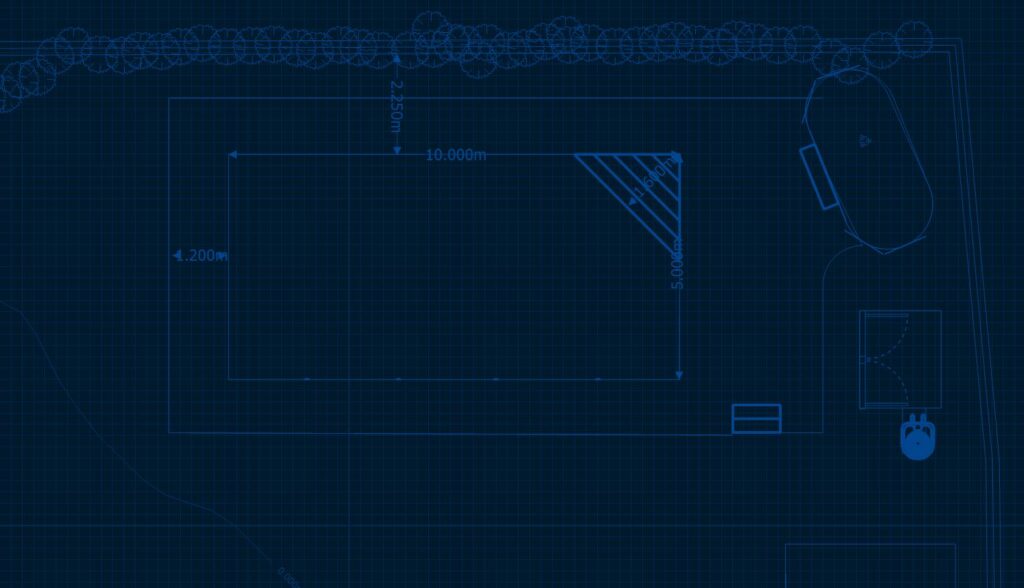
The swimming pool design process should consider factors such as the size of the pool, the shape, depth, equipment and dosing systems and the materials used.
Another common mistake that can happen in the planning stage is the failure to consider the installation process. The installation process requires careful planning to ensure that it is done correctly, and involves a series of steps, including excavation, laying the foundation, installing the plumbing and electrical systems, and adding the finishing touches. If any of these steps are not done correctly, it can lead to costly mistakes that can compromise the entire swimming pool construction project.
For the vast majority of homeowners, it is essential to hire a reputable swimming pool construction company that has the necessary expertise and experience to handle these projects.
Poor site preparation
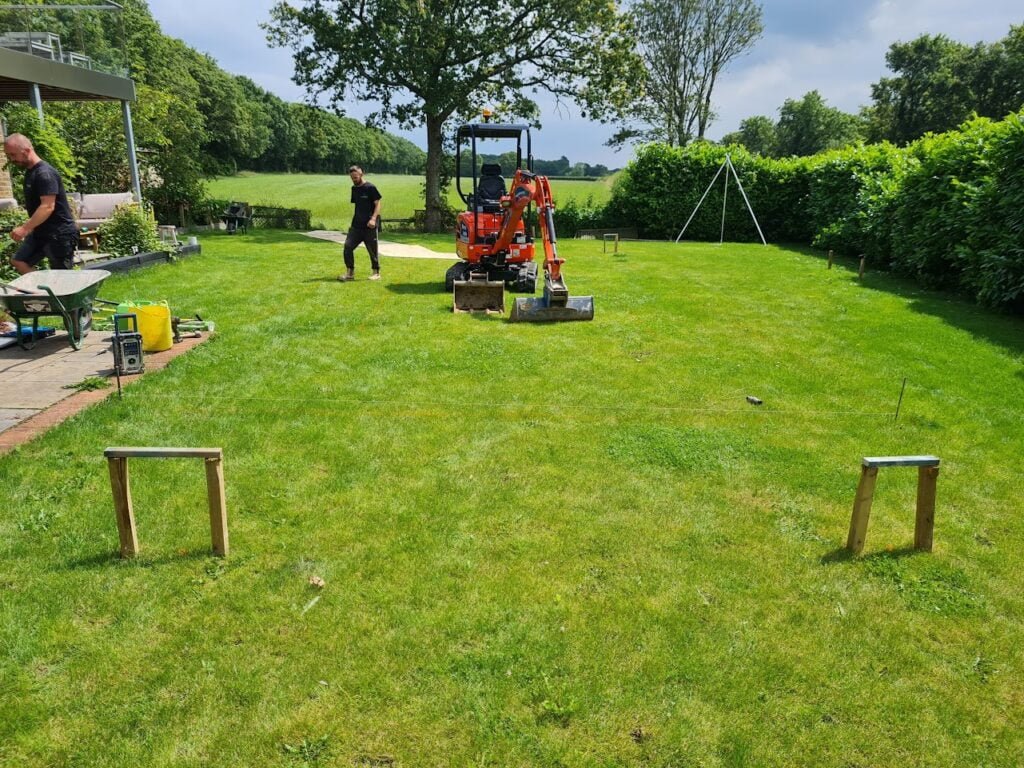
Adequate site preparation is essential as it ensures a stable foundation and optimal drainage for the pool area. Inadequate site preparation can lead to issues such as settling, cracking, and even collapse of the pool. To avoid these issues, it is important to follow proper site preparation guidelines and procedures.
One important aspect of site preparation is excavation. Excavation should be performed to the correct depth and dimensions to ensure that the pool fits properly in the designated area. The excavation should also be level and free of any debris or rocks that could cause damage to the pool.
In addition, proper drainage must be considered to prevent water from accumulating around the pool area.
Another important factor is the use of proper construction methods. For example, a concrete pool requires a stable and level foundation to prevent cracking and settling. It is important to ensure that the ground is properly compacted and that any necessary reinforcements are in place before pouring the concrete. Failure to follow proper construction methods can lead to costly repairs and maintenance in the future.
Overall, poor site preparation is a mistake that can have very significant consequences. It is important to work with a reputable swimming pool construction company that has experience in proper site preparation techniques.
Incorrect sloping and grading
Proper sloping and grading of the pool area is crucial to ensure the long-term stability and functionality of swimming pools, and common mistakes in construction can be traced back to incorrect sloping and grading during the preparation stage.
When constructing a concrete pool, pool construction experts must ensure that the site is properly sloped and graded. This includes properly compacting the soil and creating an appropriate drainage system to prevent water from accumulating around the pool. Failure to do so can result in serious problems, including cracking and shifting of the pool walls, and uneven settling of the pool, leading to costly repairs and maintenance in the future.
Another issue that can arise due to incorrect sloping is the erosion of the pool walls. If the area around the pool is not properly sloped, water can seep into the soil, causing it to become unstable and erode the pool walls. This can cause significant damage to the pool and may require extensive repairs.
Inadequate structural support
One crucial factor in ensuring the stability and longevity of a swimming pool is the provision of adequate structural support. This involves reinforcing steel bars and concrete beams that are capable of withstanding the force of the water. Without proper structural support, the pool may experience cracks and other damages that can compromise its integrity.
In addition, the base must be level and stable to ensure that the pool walls and floor are properly supported. Otherwise, the pool may shift or sink, leading to significant structural damage. To achieve a stable pool base, the construction team must properly grade and compact the soil before installing the pool.
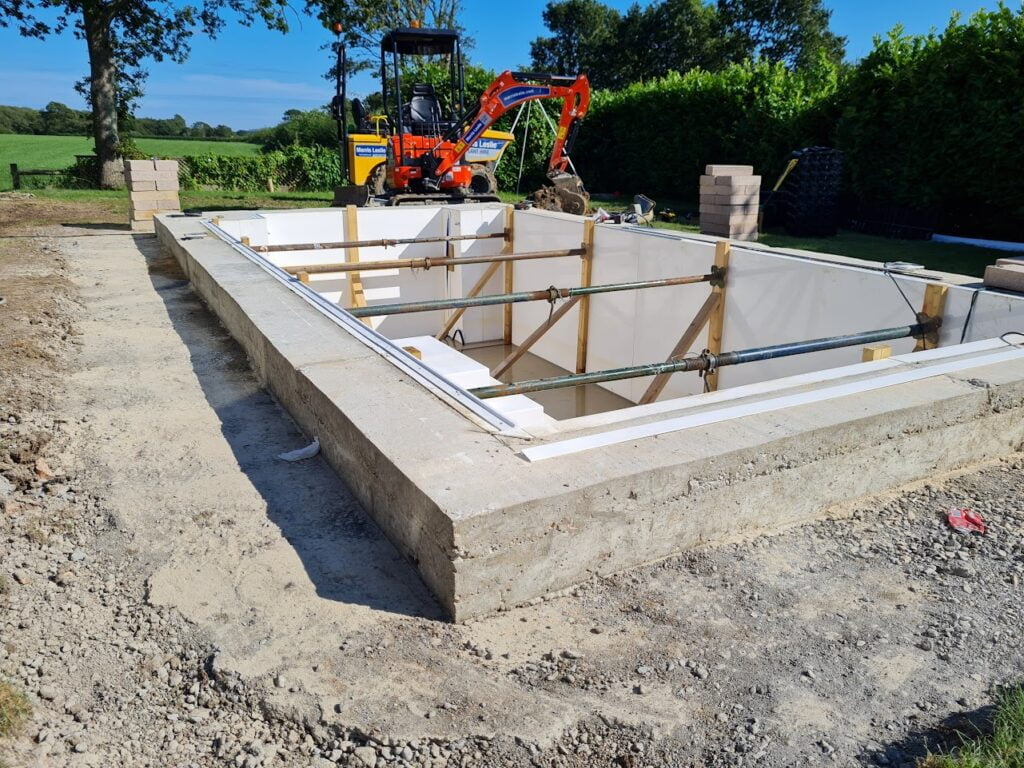
Improper plumbing and filtration system
Improper plumbing and filtration systems in swimming pools can result in poor water quality and can be a potential health hazard for swimmers. Proper plumbing and filtration systems are critical components of a swimming pool construction project.
The plumbing system should be designed to ensure that water is effectively circulated throughout the pool, while the filtration system should be able to remove impurities and maintain a safe and healthy swimming environment.
There are several construction methods that can be used to install plumbing and filtration systems in swimming pools. The most common method involves installing PVC pipes and fittings to connect the pool to the pump and filter system. The size of the pipes and fittings should be carefully selected to ensure optimal flow rates and pressure. It is also important to use high-quality materials that can withstand the corrosive effects of chlorine and other chemicals commonly used in swimming pools.
The filter system should also be appropriately sized for the pool and should be able to handle the required flow rate. The filter should be selected based on the type of pool and the needs of the swimmers. For example, sand filters are effective for removing large particles, while cartridge filters are better suited for removing smaller particles.
Regular maintenance and cleaning of the filtration system can also help to reduce the need for chemicals and ensure that the pool remains safe and healthy for swimmers.
Inadequate waterproofing
When it comes to swimming pools, waterproofing is an essential. Without proper waterproofing, water can seep through the concrete structure of the pool and cause damage to the surrounding areas.
To ensure adequate waterproofing, it is important to consider the design of the pool and the installation process. A swimming pool must be adequately reinforced to withstand the water pressure and the weight of the surrounding soil. Additionally, the pool’s plumbing and filtration systems must be correctly installed to avoid leaks and other issues that can arise from improper installation. These factors can all contribute to the overall success of the waterproofing process.
Quality waterproofing materials should be used to ensure that the pool remains structurally sound and water-tight. These materials should also be applied correctly to avoid any gaps or weak points where water can seep through.
Improper chemical balance
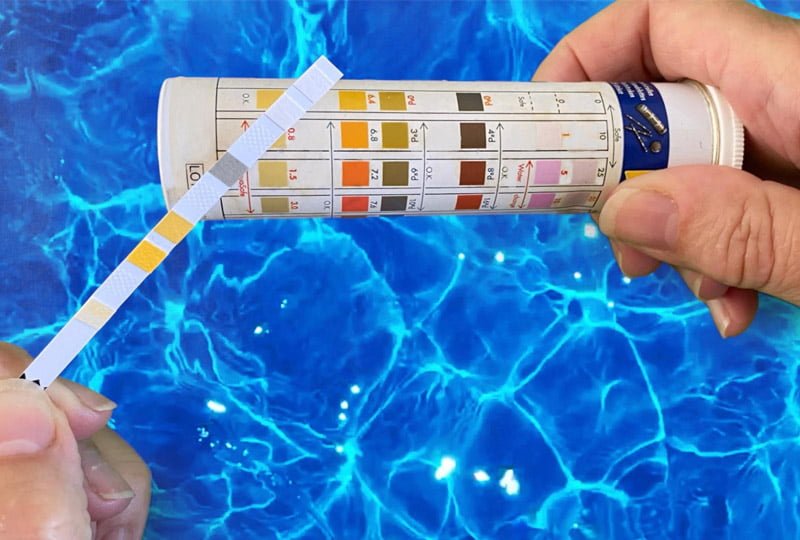
Maintaining proper chemical balance is essential in ensuring the longevity and safety of a swimming pool. The chemical balance of a pool refers to the pH level, alkalinity, and chlorine levels.
Improper chemical balance can lead to various problems, such as:
- Corrosion
- Scaling
- Cloudy water
- Skin and eye irritation for swimmers
Therefore, it is crucial to avoid this mistake and consult pool specialists for the best advice on chemicals for your swimming pool.
Why choose Hydrocare for your swimming pool build?
One of the things that sets Hydrocare apart from other pool construction companies is that our team can project manage every aspect of your pool build. This ensures that all of the common mistakes listed above will not apply to your new swimming pool installation.
The majority of the mistakes covered in this article tend to arise with DIY pool builders or when you use multiple contractors. At Hydrocare, everything is managed by us so there’s no need to worry about communication between the different contractors or things getting missed.
We’re proud to offer a warranty on new pool builds in addition to any manufacturer’s warranty for parts, and pride ourselves on our excellent customer service. We’ll ensure you’re able to enjoy your pool for the long term.
Swimming pool construction FAQs
What types of materials are commonly used in swimming pool construction?
Swimming pools are constructed using a variety of materials, including concrete, fibreglass, and vinyl. Concrete is the most popular material due to its durability and versatility. Fibreglass is known for its easy maintenance, while vinyl is often used for its affordability.
How long does the average swimming pool construction project take from start to finish?
The average duration of a swimming pool construction project from start to finish can vary based on factors such as pool size, complexity, and weather conditions. However, it typically takes 2-3 weeks for a simple above ground pool, and around 2-3 months to complete a complex in-ground concrete pool.
What factors should be considered when determining the location of a swimming pool on a property?
When determining the location of a swimming pool on a property, factors such as access, privacy, sun exposure, slope, soil type, and proximity to trees and utilities should be considered. Adequate drainage and safety measures should also be taken into account.
How often should a swimming pool be serviced and maintained, and what does this maintenance typically involve?
Swimming pools should be serviced and maintained regularly to ensure optimal functioning. This typically involves checking and balancing water chemistry, cleaning filters, inspecting equipment, and addressing any necessary repairs. The frequency of service depends on usage and environmental factors.
How can I make my swimming pool construction more eco-friendly?
At Hydrocare, we offer eco-friendly Lighthouse HeatForm swimming pools. Made from 100% recycled materials, these pools can reduce the energy consumption by up to 50% compared to a traditional in-ground concrete pool. As well as this, installing a ground source or air source heat pump will help to provide you with even more energy savings. You can expect to use around 30-45% less energy and they produce no CO2 emissions.
Contact us for expert swimming pool construction
At Hydrocare Leisure Ltd we have over 25 years experience in the construction of swimming pools and are experts in creating bespoke luxury pools to your requirements. Don’t hesitate to get in touch with our team today to start the design and installation process for your dream pool.
